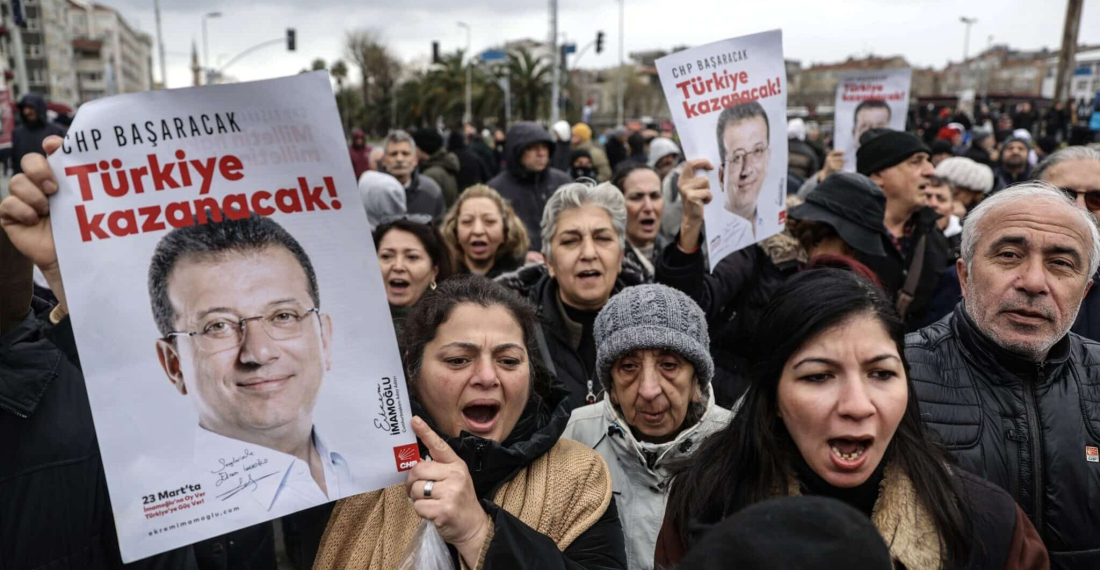Istanbul Mayor Ekrem Imamoglu appeared before police for questioning on terror-related charges on Saturday, a day after his interrogation over corruption allegations. His arrest this week has sparked widespread protests across Türkiye, with demonstrators rallying in multiple cities to voice their opposition. The mayor, who is a popular opposition figure and seen as a top challenger to President Recep Tayyip Erdogan, was detained on Wednesday following a dawn raid on his residence over allegations of financial crimes and links to Kurdish militants.
Turkish Interior Minister Ali Yerlikaya posted on social media that 343 suspects had been detained in protests in major cities on Friday night, adding “There will be no tolerance for those who seek to violate societal order, threaten the people’s peace and security, and pursue chaos and provocation.” The cities listed included Istanbul, Ankara, Izmir, Adana, Antalya, Canakkale, Eskisehir, Konya and Edirne.
Dozens of other prominent figures, including two district mayors, were also detained. Many view the arrest as a politically driven attempt to remove a popular opposition figure and key challenger to Erdogan in the next presidential race, currently scheduled for 2028. Government officials reject accusations that legal actions against opposition figures are politically motivated and insist that Türkiye’s courts operate independently.
On Saturday, police questioned Imamoglu for some five hours as part of an investigation into allegations of aiding the outlawed Kurdistan Workers’ Party, or PKK, the Cumhuriyet newspaper reported. A day earlier he was questioned for four hours over the corruption accusations. The mayor rejected all charges during both interrogations. He was expected to be transferred to a courthouse later on Saturday for questioning by prosecutors and to face possible charges.
His arrest has ignited protests that have steadily increased in intensity. On Friday, police in Istanbul used pepper spray, tear gas and rubber bullets to push back hundreds of protesters who tried to break through a barricade in front of the city’s historic aqueduct while hurling flares, stones and other objects at officers. Police also dispersed groups that had rallied outside of the city hall for a third night running, after the opposition Republican People’s Party leader, Ozgur Ozel, delivered a speech in support of the mayor.
Simultaneously, police broke up demonstrations in Ankara, the capital, as well as in the Aegean coastal city of Izmir, resorting to forceful measures at times, according to television images. Thousands marched in several other cities calling on the government to resign.
Earlier, Erdogan said the government would not tolerate street protests and accused the opposition party of links to corruption and terror organizations. Authorities in Ankara and Izmir meanwhile announced a five-day ban on demonstrations, following a similar measure imposed earlier in Istanbul.
In a message posted on his social media account Saturday, Imamoglu described his arrest as a “coup” and accused the government of exploiting the judiciary and worsening the country’s troubled economy. “With your support, we will first defeat this coup, and then we will send packing those who caused this,” he wrote on the social media platform X.






